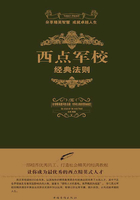They had come to a bad piece of road where a Slough of thick mud forced the wagon-way over the stumps of a turnout in the woods. "You had better let me have the reins, Clementina," he said. He drove home over the yellow leaves of the hickories and the crimson leaves of the maples, that heavy with the morning dew, fell slanting through the still air; and on the way he began to sing; his singing made her heart ache. His father came out to put up the colt for him; and Hinkle would not have his help.
He unhitched the colt himself, while his father trembled by with bent knees; he clapped the colt on the haunch and started him through the pasture-bars with a gay shout, and then put his arm round Clementina's waist, and walked her into the kitchen amidst the grins of his mother and sisters, who said he ought to be ashamed.
The winter passed, and in the spring he was not so well as he had been in the fall. It was the out-door life which was best for him, and he picked up again in the summer. When another autumn came, it was thought best for him not to risk the confinement of another winter in the North. The prolongation of the summer in the South would complete his cure, and Clementina took her baby and went with him to Florida. He was very well, there, and courageous letters came to Middlemount and Ohio, boasting of the gains he had made. One day toward spring he came in languid from the damp, unnatural heat, and the next day he had a fever, which the doctor would not, in a resort absolutely free from malaria, pronounce malarial.
After it had once declared itself, in compliance with this reluctance, a ****** fever, Hinkle was delirious, and he never knew Clementina again for the mother of his child. They were once more at Venice in his ravings, and he was reasoning with her that Belsky was not drowned.
The mystery of his malady deepened into the mystery of his death. With that his look of health and youth came back, and as she gazed upon his gentle face, it wore to her the smile of quaint sweetness that she had seen it wear the first night it won her fancy at Miss Milray's horse in Florence.
Six years after Miss Milray parted with Clementina in Venice she found herself, towards the close of the summer, at Middlemount. She had definitely ceased to live in Florence, where she had meant to die, and had come home to close her eyes. She was in no haste to do this, and in the meantime she was now at Middlemount with her brother, who had expressed a wish to revisit the place in memory of Mrs. Milray. It was the second anniversary of her divorce, which had remained, after a married life of many vicissitudes, almost the only experience untried in that relation, and which had been happily accomplished in the courts of Dacotah, upon grounds that satisfied the facile justice of that State.
Milray had dealt handsomely with his widow, as he unresentfully called her, and the money he assigned her was of a destiny perhaps as honored as its origin. She employed it in the negotiation of a second marriage, in which she redressed the balance of her first by taking a husband somewhat younger than herself.
Both Milray and his sister had a wish which was much more than a curiosity to know what had become of Clementina; they had heard that her husband was dead, and that she had come back to Middlemount; and Miss Milray was going to the office, the afternoon following their arrival, to ask the landlord about her, when she was arrested at the door of the ball-room by a sight that she thought very pretty. At the bottom of the room, clearly defined against the long windows behind her, stood the figure of a lady in the middle of the floor. In rows on either side sat little girls and little boys who left their places one after another, and turned at the door to make their manners to her. In response to each obeisance the lady dropped a curtsey, now to this side, now to that, taking her skirt between her finger tips on either hand and spreading it delicately, with a certain elegance of movement, and a grace that was full of poetry, and to Miss Milray, somehow, full of pathos. There remained to the end a small mite of a girl, who was the last to leave her place and bow to the lady. She did not quit the room then, like the others, but advanced toward the lady who came to meet her, and lifted her and clasped her to her breast with a kind of passion. She walked down toward the door where Miss Milray stood, gently drifting over the polished floor, as if still moved by the music that had ceased, and as she drew near, Miss Milray gave a cry of joy, and ran upon her. "Why, Clementina!" she screamed, and caught her and the child both in her arms.
She began to weep, but Clementina smiled instead of weeping, as she always used to do. She returned Miss Milray's affectionate greeting with a tenderness as great as her own, but with a sort of authority, such as sometimes comes to those who have suffered. She quieted the older woman with her own serenity, and met the torrent of her questions with as many answers as their rush permitted, when they were both presently in Miss Milray's room talking in their old way. From time to time Miss Milray broke from the talk to kiss the little girl, whom she declared to be Clementina all over again, and then returned to her better behavior with an effect of shame for her want of self-control, as if Clementina's mood had abashed her. Sometimes this was almost severe in its quiet; that was her mother coming to her share in her; but again she was like her father, full of the sunny gayety of self-forgetfulness, and then Miss Milray said, "Now you are the old Clementina!"















